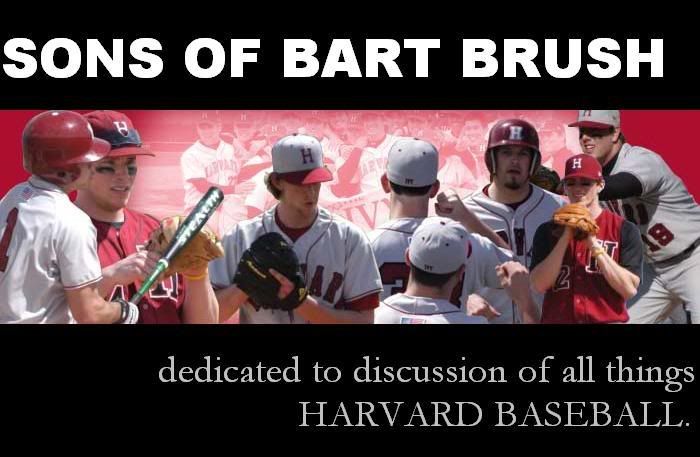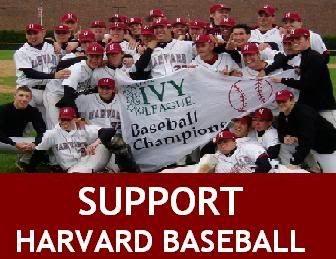With two runners on, one man out, and the Crimson leading 6-5, Harvard head coach Joe Walsh called for freshman Matt Vance to bunt junior Morgan Brown home from third base. But Vance whiffed at an outside offering from Bulldog hurler Jon Hollis.
“We put on the squeeze, and they knew it was coming, so they pitched out,” Vance said. “I threw my bat out there, and the catcher came out of his crouch early and hit my bat.”
After the home plate umpire initially declared the failed suicide squeeze attempt to be a foul ball, Walsh jogged out of the dugout to argue the call. The two umpires then conversed for several minutes before overturning the initial ruling and sending Vance to first base on catcher’s interference by Yale backstop Eric Rasmussen.
The real twist, however, came when the umpires also rewarded Brown with a trip to the plate from third—technically, a violation of the rules.
But was it? I checked in with Tyson Hubbard of the Ivy League office after initial online research suggested that since the squeeze was on, Brown may have had every right to jog home. And Tyson pointed me in the direction of Rule 8, Section 2 of the NCAA Baseball Rules:
Rule 8, Section 2 Batter Becomes Base Runner (Pg. 80)
e. If any defensive player interferes with the batter's swing or prevents the individual from striking at a pitched ball;
A.R, -- Catcher's interference on a batter should be called only on the batter's actual swing to hit the pitch. If a batter, during preliminary loosening-up swings, hits the catcher or the catcher's mitt during the backswing, the umpire should immediately call time and not interference. The pitch or swing should not be allowed since the batter's concentration or rhythm could be affected.
(1) If a play follows the interference, the offensive team may elect to ignore the interference and accept the play. However, if the batter reaches first base and all other runners advance at least one base, the interference is ignored.
(2) Any runner attempting to advance on a catcher's interference with the batter's swing shall be awarded the base the runner is attempting to reach.
If a runner is not attempting to advance on the catcher's interference, the individual is not entitled to the next base, if not forced to advance because of the batter being awarded first base.
So if Stuper had anything to rage about, it probably wasn't the final result. Maybe it's that they didn't get it right the first time. Or maybe it's simply that he's seen Joe Walsh do this to him before:
Monday, April 19, 1999
In the last lesson of a four-game clinic against Yale yesterday, Harvard Coach Joe Walsh did a very characteristic thing.
Senior righthander Donny Jamieson had just made his only serious jam of the afternoon a lot less sticky, starting a rare bases-loaded, 1-2-3 double play in the fifth by cleanly fielding Mike Kahney's come-backer to the mound and firing home for the lead runner. Senior catcher Jason Keck then turned and gunned Kahney out at first to preserve a 4-4 tie and leave runners at second and third with two outs.
Or so we all thought.
Pointing out that Kahney had, in fact, been called out for interfering with first baseman Erik Binkowski in the basepath, Walsh casually strolled out to home plate and correctly reminded umpire Rick Milner that runners may not advance on an interference call. Second and third quickly became first and second.
Though Jamieson made it a moot point by striking out shortstop Steve Dankof on a slider down and away to end the inning, it was a move symbolic of what Harvard did right all weekend--sweating the details.
In and of itself, Jamieson's double play was intelligent--it prevented the go-ahead run from scoring and got two outs for the price of one--but Walsh's spin made it that much better.


No comments:
Post a Comment